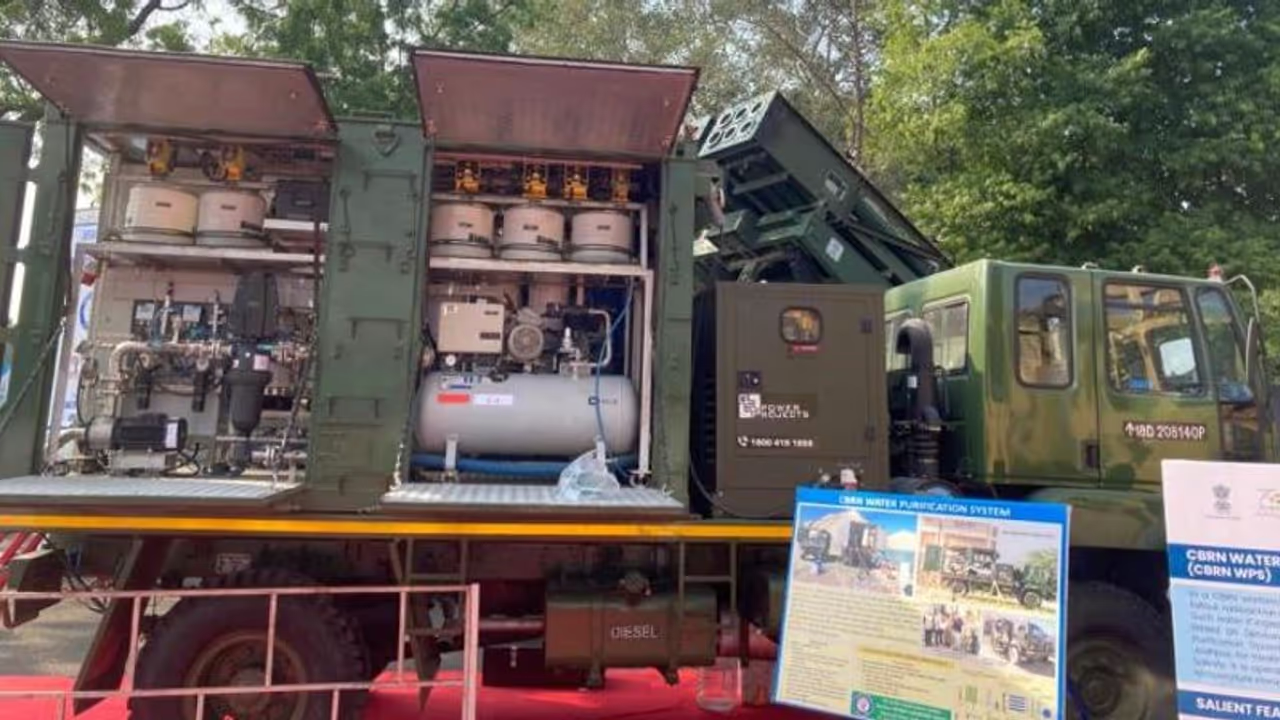The system has been developed keeping in mind chemical, biological, radiological and nuclear warfare and disaster scenarios. If the water is contaminated with nuclear particles or dust, it can purify 2500 litres of water in an hour.
Defence Research and Development Organisation's Jodhpur-based defence laboratory has developed a chemical, biological, radiological and nuclear (CBRN) water purification system for the Indian Army and Indian Air Force to be deployed at high altitudes for the soldiers to have contamination-free water.

The system has been developed keeping in mind the CBRN warfare and disaster scenarios. During warfare or any disaster, the water bodies get contaminated with radioactive dust, dispersed chemical and biological agents, and toxins.
Also Read: Increased military activity at Chinese garrison close to 2020 eastern Ladakh flashpoint
"Such water, if ingested, leads to several health issues and even death," Santosh Bhati, Technical Officer at Defence Lab Jodhpur (DLJ) told Asianet News English.
It should be noted that the DLJ has developed two types of CBRN water purification systems --- the CBRN WPS Mk 1 and the CBRN WPS Mk 2. The difference between the two systems is the Mk-1 is meant for deployment in deserts and plains and cannot operate below one-degree temperature. At the same time, the Mk-2 is built for high altitudes and operate in sub-zero degree.
DRDO has so far supplied 10 CBRN WPS Mk-1 systems to the Indian Army, which are in use. The DRDO's lab has also developed two prototypes of the Mk-2, of which one is deployed in Tangtse in the Ladakh region under the Indian Army's XIV Corps or Fire and Fury Corps.
According to a DRDO scientist, the need to have the Mk-2 system was felt after the troops of India and China got engaged in a border standoff over two years ago in eastern Ladakh.
In such a scenario, the adversary could try to contaminate the water bodies, which would be detrimental to the troops deployed on the frontline. "For this, a system like the CBRN WPS Mk-2 becomes an advantage for the forces," he said.
The Mk-2 system is operable in temperatures ranging between minus 20 degrees to 55 degrees and can purify contaminated water for drinking purposes.
"If the water is contaminated with nuclear particles or dust, it can purify 2500 litres of water in an hour. Else it can purify 6000 litres per hour," Santosh Bhati said.
The CBRN WPS Mk-2 was tested at Pangong Tso in eastern Ladakh, which is situated at an altitude of over 14,800 feet. Indian Army and Indian Air Force have placed an order for the procurement of 54 such systems. However, they need a total of 244 systems.
Also Read: India is buying over 2000 drones: There's a 'Himalayan' advantage to gain
Also Read: DefExpo 2022: Light Combat Aircraft Tejas to get lethal BrahMos Next-Generation missile
Also Read: India's own Twin-Engine Deck-Based Fighter jet prototype by 2028
